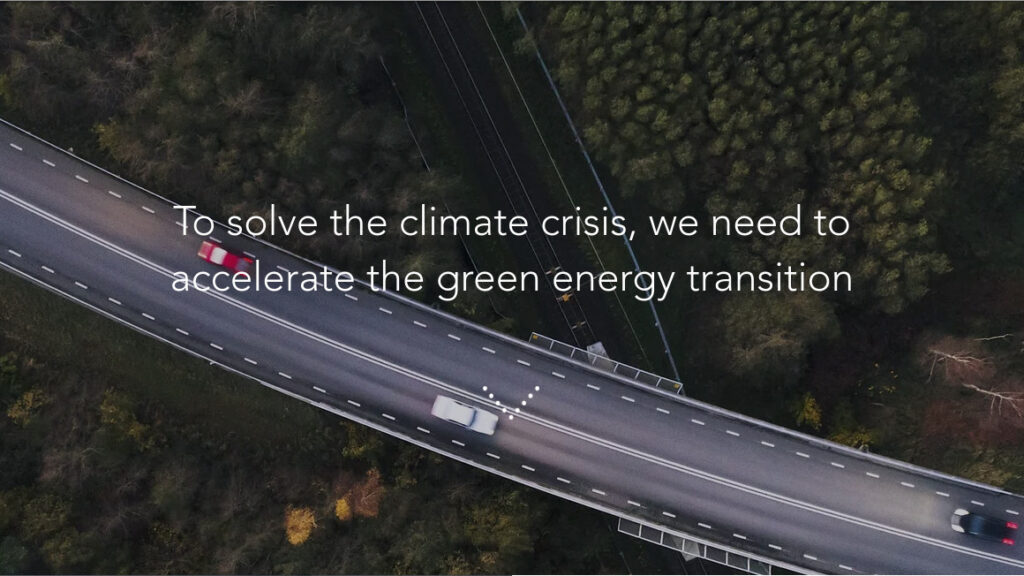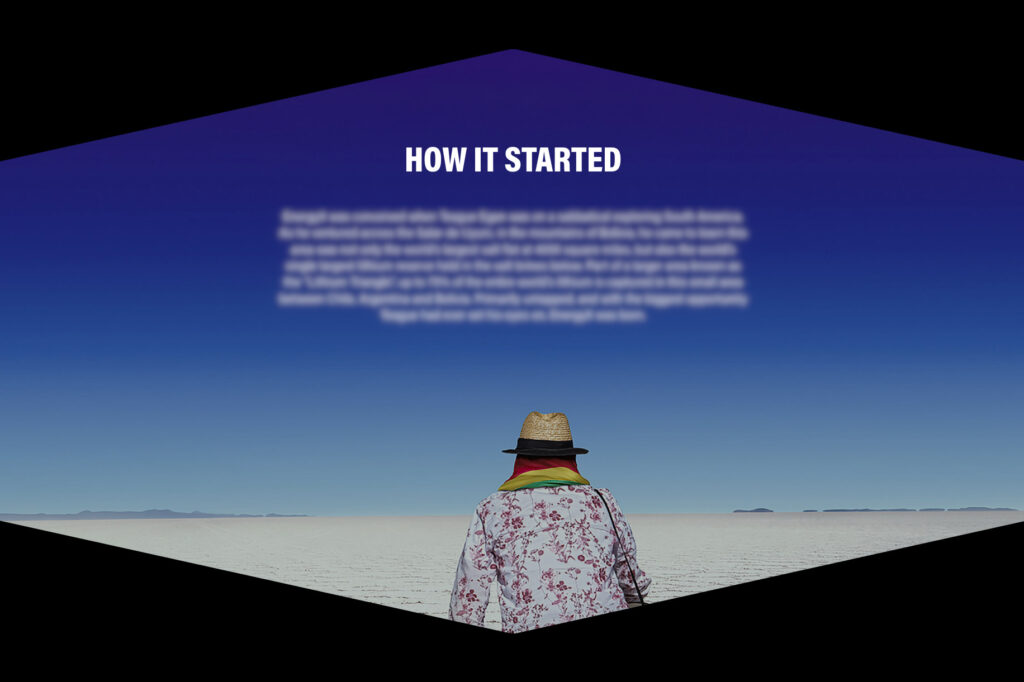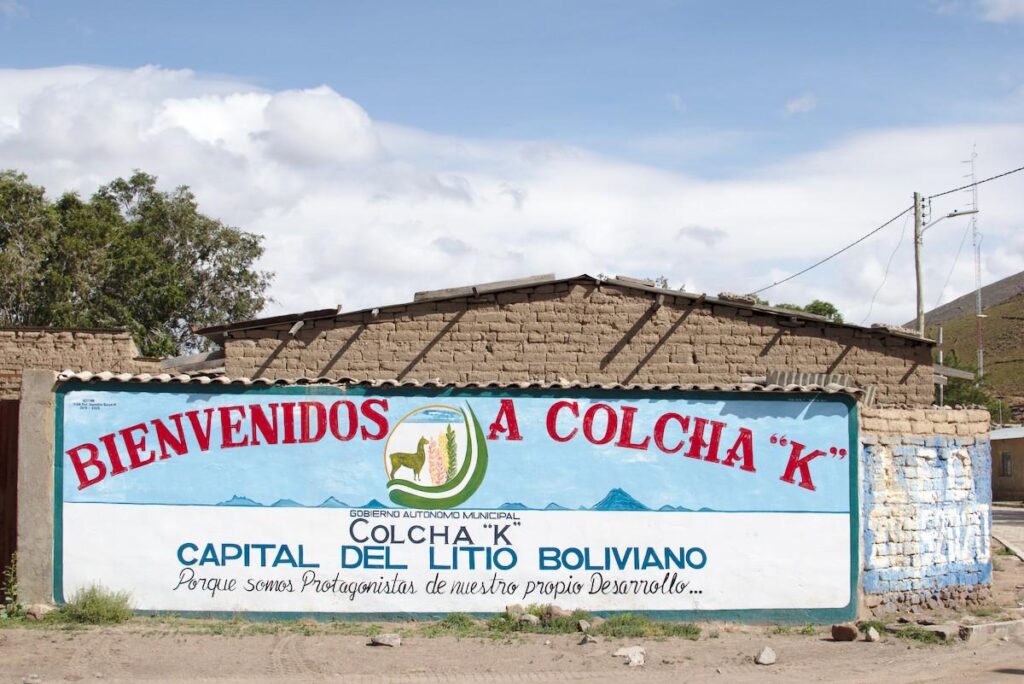Cover foto: The Blue Marble, taken by the Apollo 17 crew in 1972. Released during a surge in environmental activism during the 1970s, it became a symbol of the environmental movement, as a depiction of Earth’s fragility, vulnerability, and isolation amid the vast expanse of space. (Source: Wikipedia)
In light of the climate crisis the world urgently needs to shift from fossil fuels to renewable forms of energy. But the technologies necessary for this transition require large amounts of mineral resources, which come at the cost of environmental destruction in places of extraction.
So, what do we do? We need the energy transition to save the planet. But how can we exploit the planet to save it? How can we not? Being confronted with such a set of impossible choices seems to make it utterly difficult to take urgently needed action.
In an article submitted to the journal The Extractive Industries and Society we address this dilemma of mining and energy transition. To do so we learn from anthropologists who have dealt with energy as an ethical matter. Questions of energy, they have argued, “are intensely ethical as they encourage, if not demand, reflection on how we feel we ought to live.” (High and Smith 2019, 10)
However, they say, this ethical dimension of energy too often remains unaddressed, in particular in the context of climate change, where the energy transition appears as inherently desirable and even necessary. High and Smith argue that this is problematic because such “unreflexive judgement” leaves little room for “understanding how the people we study make sense of the world.” (High and Smith 2019, 11)
Thus, they have called for “self-reflexively” addressing the ethical dimension of energy head-on. In our article we try to do exactly that, by exploring different narratives about lithium. Intriguingly, this exploration leads us beyond the concept of ethics. As we end up arguing, the ethical dilemmas of mining and energy transition raise questions of politics that have to be part of the story.
Global lithium narratives
Our article has been in the making for some time. For some years now, we have been collaborating on a research project on lithium extraction in South America. Focusing on this particular issue we have been inevitably exposed to all kinds of stories about lithium: stories in academic articles, newspapers, documentaries, interviews, among others.
Because we live in Europe and conduct research in South America, these stories are somehow related and talking to each other while also being very different and somehow disconnected. In South America, lithium does not raise the same issues as it does in Europe. Yet, it is situated in the same overall context of a global energy transition.

We need lithium to produce EVs to solve climate change is probably one of the most widely-agreed statements among actors working on these issues. Yet there are other, nearly as predominant narratives: In the global South, development has to come before sustainability, or mining destroys local peoples and places. Most of these stories talk of different risks and opportunities. For instance, there are the risks of lithium supply bottlenecks, and risks of damaging ecosystems through extraction. But there are also the opportunities for overcoming fossil-fuel addictions and colonial patterns of resource exploitation and trade.
We think that many of these narratives are problematic. They constantly invoke generalizing subjects, such as we humans, us the global south, or them the local people. We think that the relations that are possible between such generalizing subjects do not do justice to the ethical complexities of mining the energy transition. As a consequence, the ethical prescriptions of these narratives – what they tell us to do and why – are unsuitable for addressing the current condition.
The dilemma in two stories
In our paper we try to craft different narratives about lithium that make room for different relations between people, places, and matters. We present two short stories based on conversations with particular people who are involved with lithium in different ways.
The first story is about an entrepreneur who stumbled on the opportunity of his life when traveling to the Uyuni salt flat in Bolivia. His company is now developing path-breaking technology to extract lithium from the salt flat. This will not only allow him to make billions for both his company and the Bolivian people, but also, quite modestly, to save the world.

The second story is about three local people, who live right next to the Uyuni salt flat in Bolivia. Caring for the places they call their home – located far away from urban centers – they do not have much choice but to take the opportunities that mining offers. Yet, their ethical considerations transcend the here and now of the local, as they hope for modern energy technology and care for the future of the planet.

The stories capture in some sense the dilemma we are grappling with here: A mix of hopes and fears for the future, tied into a difficult choice between saving local ecosystems and cultures, and saving the planet. Yet, what appears as a moral dilemma for those of us who are indeed concerned about both of these, and the connections between them, looks rather different for the protagonists in our stories.
For the corporations involved in the extraction of lithium there appears to be no moral ambiguity; there is no dilemma. Lithium extraction aligns with corporate profits, solving climate change, and, at least according to corporate PR materials, supporting development agendas in the areas of extraction. A win-win-win scenario. A lithium-powered energy transition is thus not only inevitable but desirable.
However, for many people living in places of lithium extraction the dilemma is not really about choosing either. To them, mining poses both risks and opportunities, which they have to juggle if they want to make the places they care about livable, just as they have juggled many such win/lose propositions in the past.
Why ethics is not enough
Coming back to questions of energy and ethics: How do such stories change how we – the authors and readers of this article – think we should go about the dilemma of mining and energy transition? They show us that the way people address this dilemma depends on who they are and where they are situated. Thus, the question of the subject – who we are – is important here.
As we noted above, global narratives of lithium are problematic because of the generalizing subjects they invoke. As a consequence, some of the core assumptions that underlie these narratives remain unquestioned. Here we want to address two of these assumptions.
- We are all in this together. As if, somehow, Humanity has to make the tough choice of sacrificing particular parts of the planet in the name of the greater good. Of course we all know that in such a bargain, neither the price to be paid nor the benefits to be gained are evenly distributed. In many ways, we are certainly not all in this together.
- We need lithium to save the planet. But wait – to save the ‘planet’? What are we actually trying to save? Lithium is not some kind of climate change vaccine. Rather, it permits the maintenance of a particular, privileged form of mobility and a particular way of life in some parts of the globe and for some strata of society.
Perhaps it is this scalar confusion – this narrative about a global subject who decides about lithium extraction to solve a planetary problem – that produces this sense of a moral dilemma. Without a global we the dilemma is no longer about impossible choices. As our stories suggest, there are plenty of ways to act in the face of the energy transition and its hunger for minerals.
We may start by refusing the narratives telling us that the energy transition is mainly about choosing technologies, such as the electric car. In fact, we may question whether simply shifting energy sources is what this ‘transition’ is really about to begin with. What also shifts in an energy transition is how our energy use connects us with other places and people. Different technologies, different energy resources – different people and places.
But can we imagine and realize different ways of connecting? These changes pose new risks, but also offer new opportunities. We risk reproducing global injustices in the supply of the resources necessary for our high-energy diets, but we may also get the chance to reshape our relations with people in places of extraction. To do so we have to find new ways of getting involved with these people – and many others more – when making ‘tough choices’. Understanding the dilemma of mining for the energy transition as a collective problem – of politics, not only ethics – does not make it any less challenging. Yet, it may lead to a little more just solutions.
Anthropologist, PhD student, fascinated by lithium and its connections around the world. What happens once we venture into the different places and issues it can take us?

Morgan Scoville-Simonds
Morgan is a postdoc at the Department of Global Development and Planning, University of Agder, where he conducts teaching and research, and affiliated researcher at the Centre for International Environmental Studies, Graduate Institute, Geneva. He received his PhD in Development Studies in 2015 for which he conducted fieldwork with rural communities in the Andes and piedmont forests of Peru on indigenous perspectives on climate change and the relationship between adaptation and development. His research focuses on the overlapping cultural, political and North-South dimensions of global environmental change.